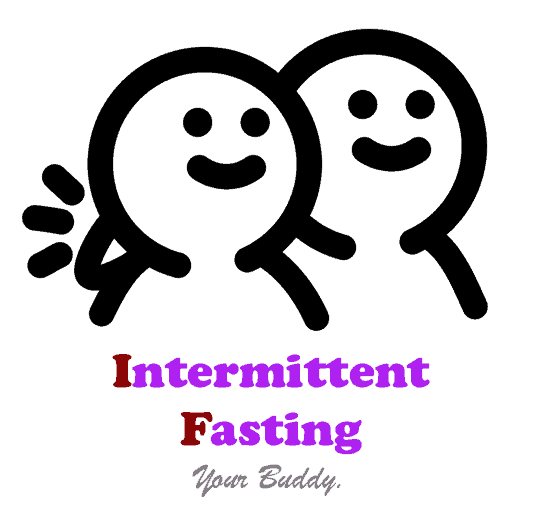I’ll always remember the feeling I had when my first fast finished. I felt thrilled, energized, and prepared to take on an entire seven day stretch of the 16/8 method. But that didn’t always work out, since my friends and I go out on the weekends a lot. So suddenly I was faced with the question: Should you take a break from intermittent fasting?
If you do Intermittent Fasting while being in a calorie deficit (to lose weight), the answer is yes. That’s because at some point your metabolism level will be so slow, that you stop losing weight. At this point, you need to reset things and get your level high again.
I felt like fasting during the week was easier than on weekends. So I decided to stick to my plan during the week and vary with the hours on the weekend.
This was a great decision – but let me explain more.
Should You Take a Break From Intermittent Fasting?
At some point during your intermittent fasting journey, you might decide to take a break. This can be because of various reasons.
- You’re in a really stressful situation in life
- Going traveling
- Social life
- Undergoing a major life event, like the death of a close friend or family member
I think IF shouldn’t affect your social life too much. Did you stop going out to dinner because your friends are not hungry before 8 p.m? Change your eating pattern or take a day off.
Some people might be just too tired to continue fasting. Being hungry makes you feel like you have no energy. Simple tasks like going to the toilet, writing something on the keyboard, or moving your mouse are always associated with a lot of effort. I recognize this happening especially in the first few weeks.
Another bad influence is when you’re constantly looking at the clock to check how far away your eating window is. This will at some point crack your mental focus and might even make you depressed. It’s totally normal if this happens in the first few weeks, but after living this lifestyle for some time this shouldn’t be a thing anymore.
You don’t have to instantly consume food just because your feeding window started. You’ll know when you’re hungry. Just listen to your body.
Can you take a break from intermittent fasting on weekends?
Absolutely. While this will affect your weight loss results, it is beyond OK to do that. Because it’s simple: there is no wrong way to do intermittent fasting. At some point, you will have to adapt your intermittent fasting plan to your needs and create your own. The most important thing is that YOU can easily stick to it.
Also, fasting is easier during the week because you don’t focus as much on food while being at work or school. If you decide to take a day off, I always recommend that you eat a lot of whole foods like vegetables or nuts. In addition to that, I even recommend that you count your calories – just to be safe.
Every now and then you should reset things and eat normally for a day. In dieting, this is also called the refeed day.

Well, when and how should you reset things?
I suggest taking a break for 2-3 days after at least 3-4 weeks of following a strict intermittent fasting plan.
You need that ‚cheat day‘ every now and then to essentially reset things. And no, cheat day does not mean “eat whatever you want”. I recommend that you don’t binge eat until you‘re full. When I say cheat day, I’m talking about 20% more than usual. For a person that normally consumes 1‘800 calories, that would be 2‘160 calories on their cheat day.
Does the yoyo effect happen when you stop intermittent fasting?

Well, not as such.
Let’s define the yo-yo effect. You follow a diet successfully for quite some time. You count your calories, you exercise regularly, and include some HIIT workouts. You do pretty much everything right.
But then suddenly your weight loss slows, you feel less energized and after some time you stop losing weight completely. No matter what you do, the weight comes back. You get so frustrated and get this awful feeling of failure, that you just end up giving up on the diet. At this point, your weight comes back even faster – and everyone will blame you for not sticking to the diet.
But this is so wrong. Not that you gave up was the problem – the diet was.
How was the diet the problem?
Let me explain. Most advice-giving people miss mentioning one very very critical part of the equation. When you eat less than your body needs, your body will, at some point, compensate . This means, it is going to use less – and therefore your metabolism will go down.
So let‘s summarize: You start a diet, it goes well, you lose weight, but suddenly the weight loss stops.
The caloric deficit is useless by now, and if you think eating less will make you lose weight again you’re wrong. Undereating can also lead to weight gain instead of loss.
Intermittent fasting without a caloric deficit is the opposite of this. It lowers insulin, allows the body to access the stored body fat, increases metabolism in response to a large amount of energy it has access to, and can improve insulin sensitivity.
If you decide to take a break, which might be good after a while, you will simply return to the way of eating that lead to gain the excess weight. But you won‘t be worse than before you started intermittent fasting.
Still, I encourage you to follow some kind of fasting protocol, like 16/8, but again, stopping with intermittent fasting (without a caloric deficit) will not cause the weight to regain beyond where you started. It can get critical if you return to your eating habits before starting IF.
Intermittent fasting is meant to be a lifestyle. While you can, you should not just stop for a long period of time.
“Healthy Lifestyle is not like a tattoo.”
Negative effects could appear when you stop intermittent fasting
As we all know, intermittent fasting has amazing benefits, such as:
- Better digestion of food and no bloating
- Burning fat more efficiently
- Good sleep
- Clearer skin
- many more
When you stop doing IF for only a short period of time, these benefits should not go away. You will probably not even notice anything.
But if you take a break from IF for longer than a week, you might see some negative effects within a few days. Not only will you lose all the benefits, but you might also start to begin feeling tired and weak all the time. This is usually something we notice happening in the first few weeks when you begin with IF.
This might eventually lead to the following:
- You’ll be hungry all the time and get the desire to eat more
- Your caloric intake will go up
- Therefore, through this higher caloric intake, you will gain a few pounds.
Should I take a one-day break from intermittent fasting? (Cheat day)

Key to a successful IF journey is consistency, physical activity, knowing which foods to avoid and which to eat for the best possible weight loss.
Now, when it comes to taking breaks, I always suggest to listen to your body and then decide your diet plan. But after 3-4 weeks you should take 2-3 days off, else your body may feel discomfort or you might get stomach ulcers.
Being hungry all the time won’t make you lose weight and get in shape. Eat fresh, healthy food, and avoid eating street food (13 Best Foods to Eat after Fasting). Oftentimes street food only makes you full for a short time. Whole foods have more fiber and therefore make you feel full longer.
Cheat days can‘t help your goals. More likely, they will offset the progress you‘ve already made. Instead of eating as many calories as possible, you should just enjoy a filling meal that you can‘t eat on a fasting day.
Situations where you should take a day off from intermittent fasting
At some point, life is going to force you into taking a break from intermittent fasting every now and then.
Let’s assume you follow the 5:2 diet and restrict your daily calorie intake. You’ve been doing it for a few weeks and it has gotten a habit that you restrict your calories on Tuesday and Saturday.
But exactly next Saturday is your best friend’s wedding. So, what are you going to do?
- Be strict on my scheduled low-calorie day
- Have a good time and celebrate my friend’s luckiness
You should go for choice 2. You can easily just restrict your calories on another day.
Or maybe you have a breakfast with friends during your fasting state. Should you just sit there awkwardly and drink your black coffee, or should you engage and eat even though you usually skip breakfast? If this does not start to be a habit, and if you only do it every once in a while, you are good to let it slip.
I’m not trying to down talk IF, and it should definitely always be your top priority to stick to your schedeule over the long term. Just don’t take yourself too serious, only for short term gains.
Bottomline
There is also a different view on cheat days from more strict people. Some people believe, that by breaking your habit and cheating once, you are likely to do it a second time, third time, and so on. I disagree with that. This might apply for normal diets, but IF makes it fairly easy to go back to your old habit.
In fact, there is no long-term study that researched the science behind cheat days. So until a meaningful study is done, I‘ll continue on my fasting protocol.

